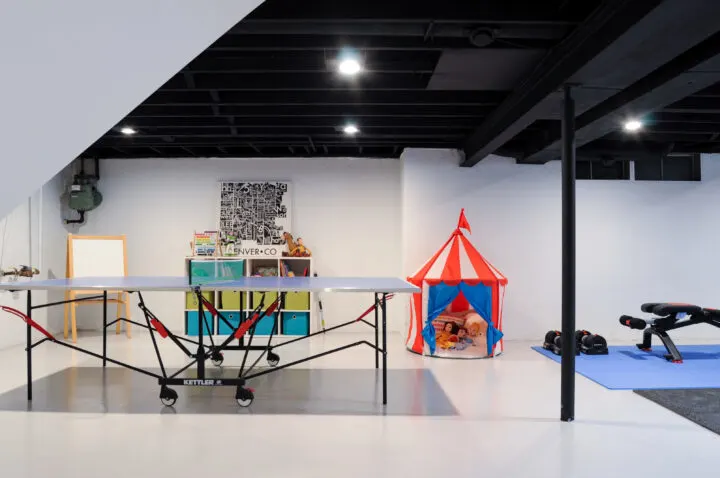Last Updated on August 8, 2022 by lindseymahoney
Choosing the type of flooring for your home is a BIG decision! It has to hold up to the wear and tear of your family, and not all flooring is created equally. I am breaking down my top tips for choosing the best flooring material for your family and home.
What to Know When Purchasing New Flooring
Carpet
Carpeting can be a touchy subject – some people love it and some hate it! Personally, I enjoy cozy carpeting in the bedrooms. I think it welcomes snuggling on the ground with kids, stretching, and wrestling with the pups. Here are some basics that are important to know when considering a carpet purchase:
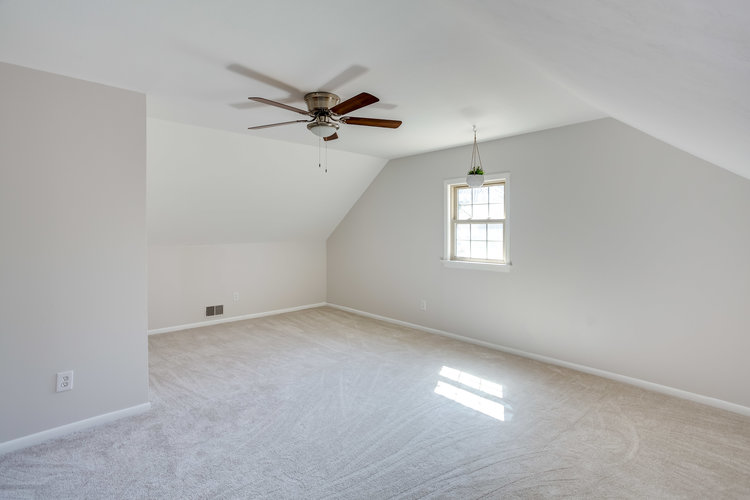
Carpet Density
The thicker/denser the carpet, the better the quality.
Carpet Fiber
Polyester and Nylon are the most common fiber types.
- Polyester fiber can wear more easily than nylon, so I would not recommend this type of carpet for really high traffic areas like stairs. You will find that polyester is usually cheaper than nylon. For bedrooms, I am ok with using this fiber but would think twice if I were installing it in hallways/stairs.
- Nylon fiber is the most common used and is more durable and stain resistant.
Carpet Pad
Many people say that this is your most important purchase when buying a carpet. You want to get moisture-resistant padding to be able to soak up any spills or animal accidents. A good pad will help prevent smells from sticking to the carpet. Also, the thicker the pad, the more cushion under your feet.
Carpet Pile
The surface of the carpet. There are a few varying types of pile but the most common is the cut pile that features loops cut at the same height.
Average Pricing
Of course, it varies based on the type of carpet you purchase and can range anywhere from $1-$10. I usually buy our carpet at Home Depot (and put it on the 2 yr. no interested CC, of course!) and we end up paying around $3/sf for carpet, pad, and installation. Home Depot often offers specials where they include moving your furniture and carpet haul away into the full package!
How to determine total cost
- LxW of your room =Total Square feet
- ex: 10×10 room is 100 SF – If the cost is $3/SF, the total cost would be $300
Hardwood Floors
Hardwood floors are always a fan favorite. They look great, are durable, and are easy to clean!
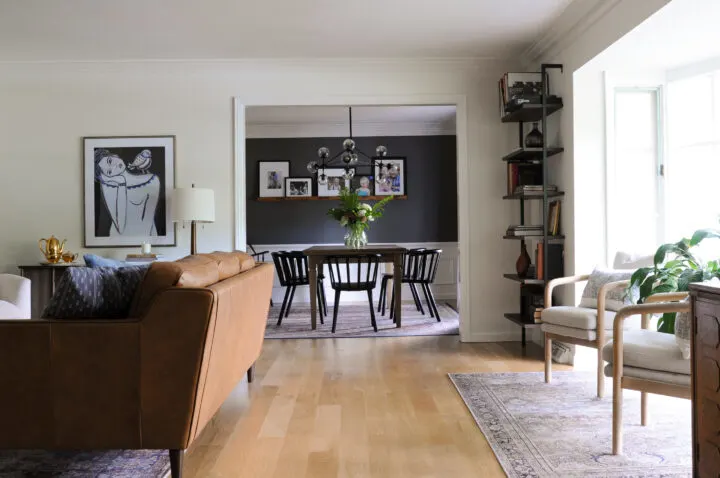
Hardness
- Common hard woods: Red/White oak, Cherry, Maple
- Common soft woods: Pine, fir and cedar – softwoods are more prone to scratching and denting but tend to be less expensive than hardwoods
Color
Each type of wood has a varying color. For example, a red oak pulls more red tones and a white oak pulls more yellow tones. You can get different colors by using stain, however, you can see how wood color differs by putting the same stain on each wood type and seeing what colors pull from it.
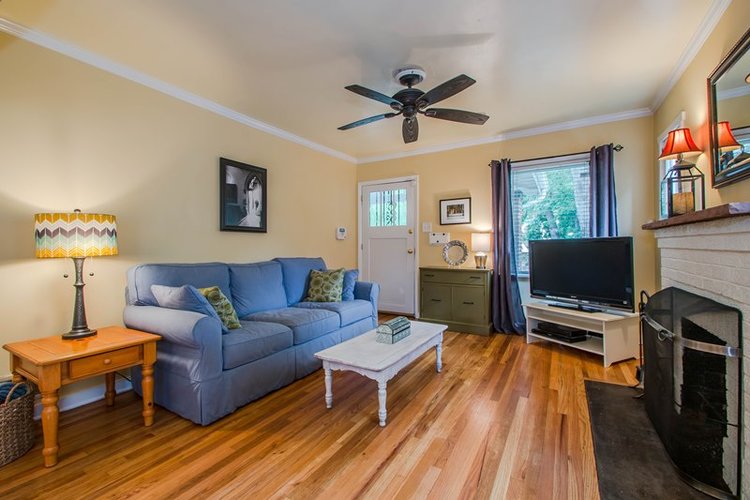
Solid vs. Engineered Hardwood
- Solid woods can last forever and can be refinished many, many times. They are milled from a single piece of wood and are more susceptible to water damage and buckling if there is a lot of moisture in the air
- Engineered hardwood is layered with many plies of wood and gives the floor greater durability. It is much more resistant to moisture than solid woods and can be refinished less since it is not made of a solid piece of wood.
Finish in Place vs. Pre-Finished Wood
- Finished in place: This is when raw wood is installed and a stain is applied in your home. This is generally more expensive but allows for more customization with colors.
- Pre-finished: You have a select amount of hardwood colors to choose from and they are stained at the factory. Once the floors are installed they are ready to go.
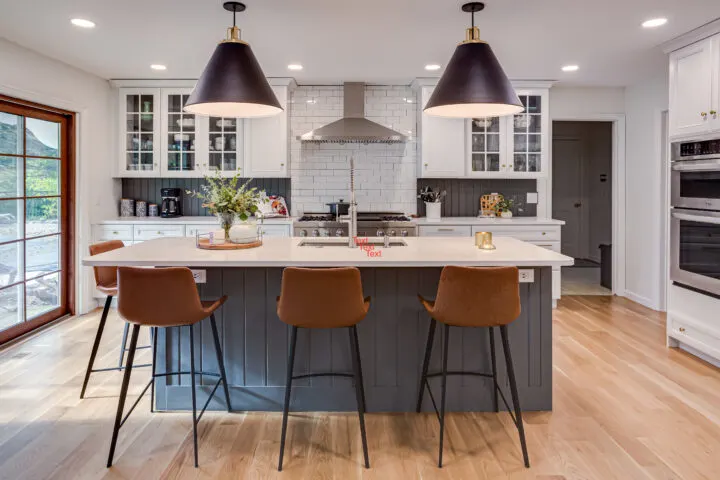
Average Pricing
While the wood can be generally inexpensive, the installation per square foot is what really increases the price of this type of flooring. The installation rate will depend on the type of flooring – engineered hardwood is easier to install so it will cost less than solid wood that is finished in place. This will cost you anywhere from $5-$20/SF.
Additional Flooring Options
There are so many other affordable flooring options for you to choose from!
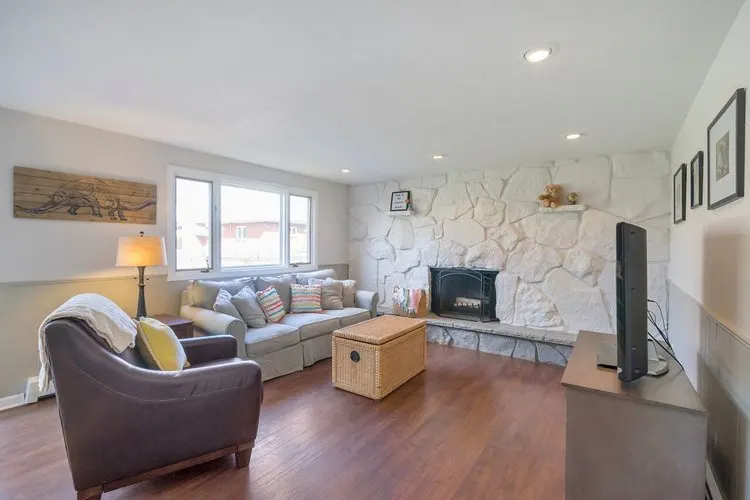
Linoleum Floors
This type of flooring is coming back into style and has lots of fun design options. This type typically comes in one sheet that you roll out to install.
If linoleum floors are already installed in your home, there is an option to paint them. This is what I did in our laundry room/mudroom using Rust-Oleum Home products and it turned out great!
Check out the full tutorial for how to paint linoleum floors!
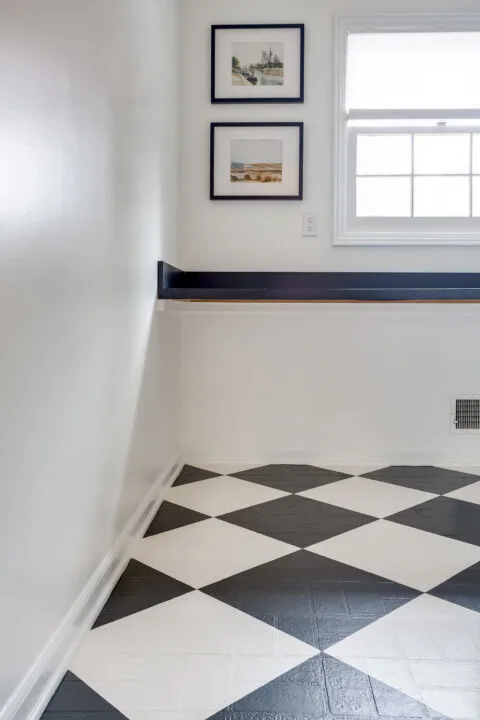
Laminate Floors
We have used laminate wood flooring in many of our homes. We used Pergo laminate floors in our last Denver home and Home Decorators for our recent flip house.
Check out how we painted the giant fireplace rock wall in our Denver home. Pergo flooring is shown in the playroom image below.
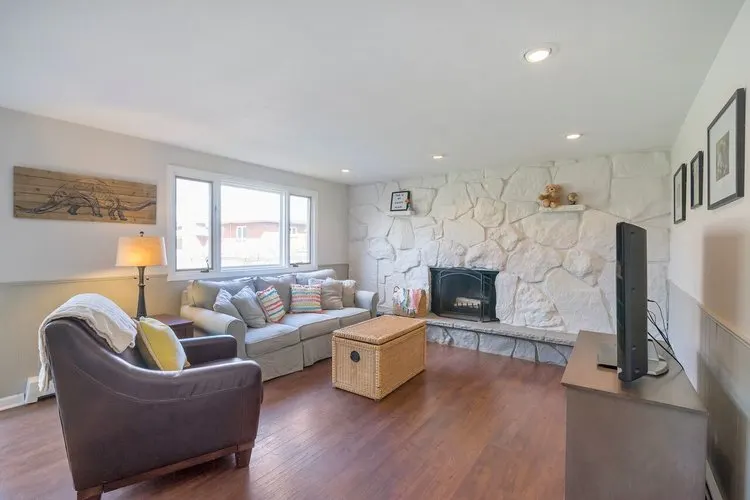
Check out the complete transformation of our Toledo flip house with the Home Decorators flooring.
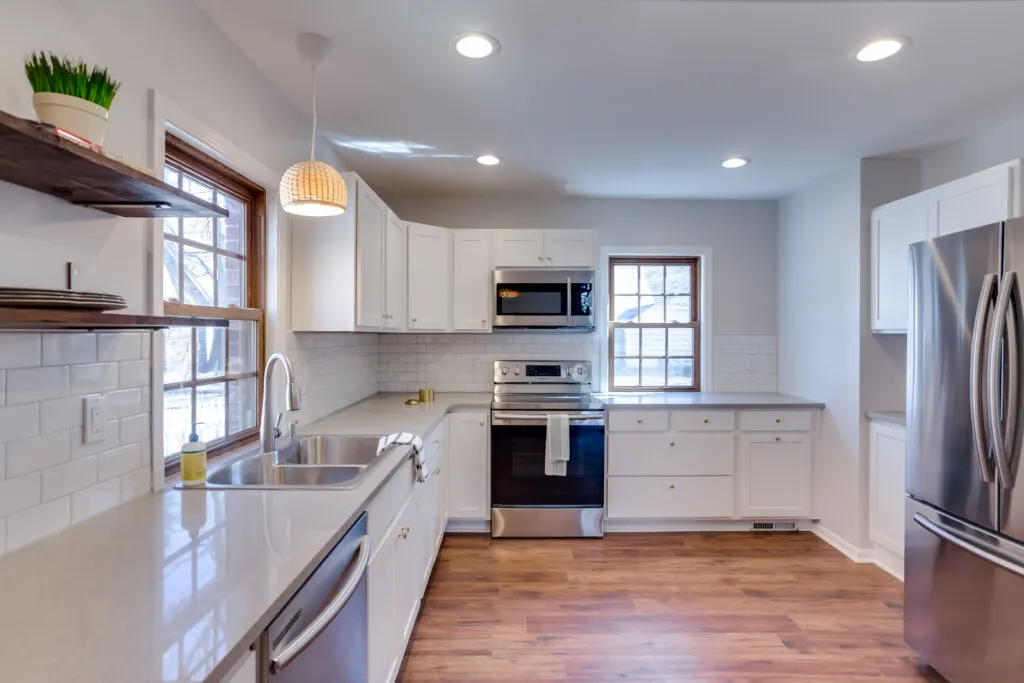
When buying wood floor substitutes, look at the samples and try to avoid wood that looks like a sticker. There are some brands that look more realistic than others and I would recommend finding those. Laminate is a great alternative to wood flooring if you have a smaller budget and want durable floors.
Vinyl Plank Floors
New composite flooring that tends to be made with plastic is another durable and affordable option. If you have uneven floors, these can be challenging to snap together or you can risk the tiles unsnapping if there are low spots on your floors. We have used the brand Life Proof for a rental and while it looks nice, the floors are uneven and the seams are not as tight as I would like.
Tile
This is an option many people are familiar with. Tile is not super expensive, but the installation is where the high cost comes in. If you can install it yourself, you will save a good chunk of money BUT you risk having floors that may look like an amateur installed them. We installed tile flooring in a basement bathroom and I have not had the energy to try that DIY again!
Save money by installing subway tile backsplash yourself with this easy tutorial!
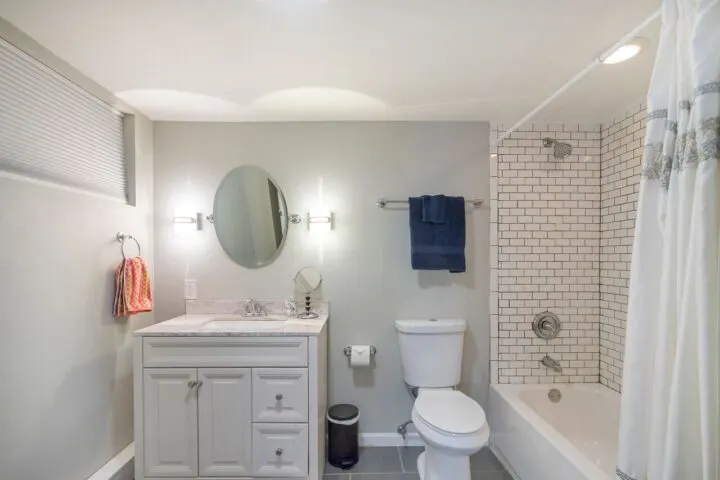
Concrete Floors
I recently painted the concrete floors in our basement and it completely transformed the look of the space. This is an affordable way to create more living space in your home.
